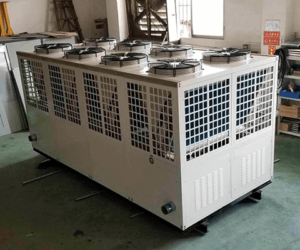In a world where efficiency is paramount, industries are constantly seeking innovative solutions to combat the challenges posed by heat. Enter thermal spray water chillers, a game-changing technology that provides unparalleled cooling and offers numerous benefits.
Thermal spray technology is designed to cool down processes that generate significant amounts of heat, such as thermal spraying, laser cutting, and high-energy applications. By harnessing the power of atomization, these chillers deliver a fine mist of water, effectively absorbing heat and reducing temperatures rapidly.
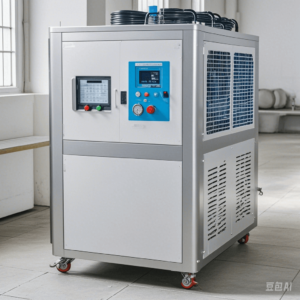 Whether you’re operating in the manufacturing, automotive, or aerospace sector, these water chillers offer a range of advantages. They not only enhance process efficiency and ensure product quality but also extend the lifespan of machinery by preventing overheating. Additionally, thermal spray water chillers contribute to energy savings, reducing operating costs and minimizing environmental impact.
Whether you’re operating in the manufacturing, automotive, or aerospace sector, these water chillers offer a range of advantages. They not only enhance process efficiency and ensure product quality but also extend the lifespan of machinery by preventing overheating. Additionally, thermal spray water chillers contribute to energy savings, reducing operating costs and minimizing environmental impact.
Join us as we delve deeper into the world of thermal spray water chillers, uncovering their exceptional cooling abilities and their transformative effects on various industries. Discover how these chillers defy heat and revolutionize the way businesses cope with temperature challenges.
Understanding the concept of thermal spray technology
Thermal spray technology is a sophisticated method that involves the application of material onto a substrate to create a protective or functional coating. This process begins with the heating of the spray material, which can be in the form of metal, ceramic, or polymer, until it reaches a molten or semi-molten state. The heated particles are then propelled towards the substrate at high velocities using a gas or air stream, which allows them to bond upon impact. This technique is widely recognized for its versatility and effectiveness in enhancing the properties of a wide range of materials and surfaces.

The appeal of thermal spray technology lies in its ability to improve wear resistance, corrosion resistance, and thermal conductivity. By applying coatings that can withstand extreme conditions, industries can significantly extend the lifespan of their machinery and components. The process is particularly advantageous in sectors such as aerospace, automotive, and manufacturing, where equipment often faces harsh operating environments. With continual advancements in spray techniques and material science, thermal spray technology is evolving, paving the way for innovative applications and solutions.
Moreover, the adaptability of thermal spray technology allows it to cater to various surface geometries and sizes. Whether dealing with large industrial components or small precision parts, thermal spraying can be tailored to meet specific requirements. This flexibility ensures that industries can achieve optimal performance and reliability, ultimately leading to improved operational efficiency and reduced downtime. Understanding the fundamentals of this technology is crucial for industries looking to leverage its benefits in their production processes.
Benefits of thermal spray water chillers
Thermal spray water chillers offer a multitude of benefits that extend beyond traditional cooling methods. One of the primary advantages is their ability to enhance process efficiency. By effectively lowering operational temperatures, these chillers prevent overheating in critical applications, such as thermal spraying and laser cutting. This ensures that machinery operates within optimal temperature ranges, facilitating consistent performance and reducing the risk of equipment failure. When processes run smoothly, industries can achieve higher throughput and improved product quality, leading to greater customer satisfaction.

In addition to enhancing efficiency, thermal spray water chillers play a vital role in safeguarding equipment longevity. Overheating can lead to significant wear and tear on machinery, resulting in costly repairs and replacements. By maintaining lower temperatures, these chillers contribute to the extended lifespan of equipment, allowing businesses to maximize their capital investments. This benefit is particularly crucial in industries where machinery is frequently subjected to demanding conditions, as any downtime can have substantial financial implications.
De plus, les refroidisseurs d'eau à pulvérisation thermique peuvent réduire considérablement les coûts de maintenance. Avec une solution de refroidissement cohérente en place, la probabilité de dysfonctionnement des équipements diminue, ce qui entraîne moins d'interruptions de production et des dépenses de maintenance réduites. Cet avantage financier, associé à l'efficacité et à la longévité accrues des machines, fait des refroidisseurs d'eau à pulvérisation thermique un atout inestimable pour les entreprises qui s'efforcent d'optimiser leurs opérations tout en maîtrisant leurs coûts.
Efficacité énergétique des refroidisseurs d'eau à pulvérisation thermique
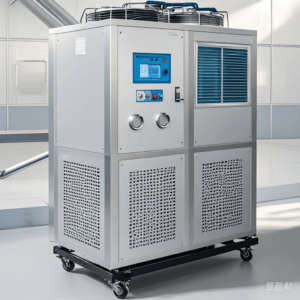
Energy efficiency is a critical consideration for any industrial process, and thermal spray water chillers excel in this area. These chillers utilize advanced atomization technology, which allows for the precise distribution of water in the form of a fine mist. This method not only enhances heat absorption but also reduces the overall volume of water needed for effective cooling. By minimizing water consumption, businesses can lower their operational costs while also contributing to sustainable practices.
Moreover, the design of thermal spray water chillers often incorporates energy recovery systems that optimize performance. These systems capture waste heat generated during the cooling process and redirect it for other applications, further improving overall energy efficiency. By utilizing this recovered energy, industries can significantly reduce their reliance on external power sources, leading to lower energy bills and a decreased carbon footprint.
In addition to direct energy savings, thermal spray water chillers often require less energy to operate compared to traditional cooling systems. This is due to their ability to achieve rapid cooling with minimal energy input, making them an attractive option for businesses looking to enhance their sustainability initiatives. By investing in these chillers, companies can not only improve their operational efficiency but also position themselves as environmentally responsible players in their respective industries.
Cost savings with thermal spray water chillers
Implementing thermal spray water chillers can lead to considerable cost savings for businesses across various sectors. One of the most immediate financial benefits is the reduction in energy expenses. As discussed previously, these chillers are designed for optimal energy efficiency, allowing companies to lower their monthly utility bills. In an era where energy costs are continuously rising, this reduction can significantly impact a company’s bottom line, freeing up resources for other critical areas of operation.
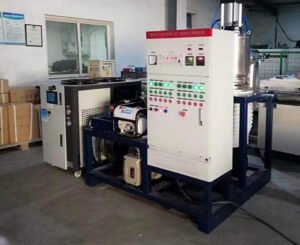
In addition to energy savings, thermal spray water chillers contribute to reduced maintenance costs. By preventing overheating and the associated wear and tear on equipment, these chillers minimize the frequency and severity of repairs. This proactive approach to maintenance not only extends the life of machinery but also reduces the labor and materials required for upkeep. Consequently, businesses can allocate their maintenance budgets more effectively, enhancing overall financial health.
Moreover, the initial investment in thermal spray water chillers can yield long-term financial returns. While the upfront costs may be higher compared to conventional cooling systems, the cumulative savings achieved through energy efficiency, reduced maintenance, and improved productivity often outweigh these initial expenses. Consequently, organizations that prioritize fiscal responsibility and operational efficiency will find that thermal spray water chillers represent a sound financial investment, driving profitability and sustainability in the long run.
Durability and longevity of thermal spray coatings
The durability of thermal spray coatings is a significant factor that enhances the appeal of thermal spray water chillers. Coatings applied through thermal spray technology exhibit remarkable resistance to wear, corrosion, and thermal shock. This durability results from the robust bond formed between the coating and the substrate during the spraying process. As a result, industries benefit from longer-lasting components that can endure harsh operating conditions, reducing the need for frequent replacements.
Another compelling aspect of thermal spray coatings is their versatility in addressing various application needs. Industries can select from a range of materials and coating types based on specific requirements, such as hardness, temperature tolerance, and chemical resistance. This flexibility ensures that components are adequately protected from environmental factors, thereby enhancing their overall lifespan. For example, in aerospace applications, where extreme temperatures and corrosive environments are commonplace, thermal spray coatings can provide the necessary protection, ensuring reliable performance over time.
De plus, la longévité des revêtements par pulvérisation thermique se traduit par des économies significatives pour les organisations. En investissant dans des revêtements durables, les entreprises peuvent réduire les perturbations opérationnelles causées par des pannes d'équipement et les coûts de réparation associés. Cette fiabilité favorise un environnement de production plus efficace, permettant aux entreprises d'atteindre leurs objectifs sans être gênées par des temps d'arrêt imprévus. Dans l’ensemble, la durabilité et la longévité des revêtements par pulvérisation thermique sont des considérations clés pour les industries qui cherchent à optimiser leurs opérations et à conserver un avantage concurrentiel.
Avantages environnementaux des refroidisseurs d'eau à pulvérisation thermique
En plus de la conservation de l'eau, les refroidisseurs d'eau à pulvérisation thermique contribuent à réduire la consommation d'énergie. Leur conception économe en énergie permet un refroidissement efficace avec une consommation d'énergie minimale, conduisant à une réduction des émissions de gaz à effet de serre. En réduisant leur dépendance aux combustibles fossiles pour la production d’énergie, les entreprises peuvent réduire considérablement leur empreinte carbone, s’alignant ainsi sur les objectifs mondiaux de développement durable. De plus, de nombreux refroidisseurs d'eau à pulvérisation thermique sont conçus pour utiliser des sources d'énergie renouvelables, améliorant ainsi leurs qualités environnementales.
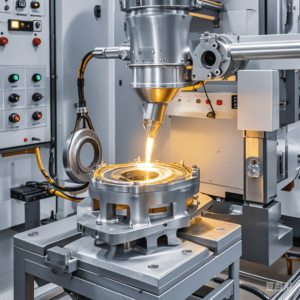 The implementation of thermal spray water chillers also fosters a culture of sustainability within organizations. By prioritizing eco-friendly cooling solutions, companies demonstrate their commitment to environmental stewardship, which can enhance their reputation and appeal to environmentally conscious consumers. This proactive approach not only benefits the planet but also positions businesses as leaders in their respective industries, paving the way for future growth and success.
The implementation of thermal spray water chillers also fosters a culture of sustainability within organizations. By prioritizing eco-friendly cooling solutions, companies demonstrate their commitment to environmental stewardship, which can enhance their reputation and appeal to environmentally conscious consumers. This proactive approach not only benefits the planet but also positions businesses as leaders in their respective industries, paving the way for future growth and success.
The environmental benefits of thermal spray water chillers are increasingly important in today’s sustainability-focused landscape. One of the primary advantages is their ability to reduce water consumption compared to traditional cooling systems. By utilizing advanced atomization technology to create a fine mist, these chillers minimize the amount of water needed for effective cooling. This reduction not only conserves a vital natural resource but also lowers the environmental impact associated with water usage in industrial processes.
Applications of thermal spray technology in various industries
Thermal spray technology has found extensive applications across a multitude of industries, showcasing its versatility and effectiveness in enhancing component performance. In the aerospace sector, for example, thermal spray coatings are employed to protect engine components from extreme temperatures and corrosive environments. By applying durable coatings, manufacturers can ensure the reliability and longevity of critical parts, which is essential for safety and efficiency in aviation.

The automotive industry also greatly benefits from thermal spray technology. Coatings are applied to various components, such as pistons and cylinder heads, to improve wear resistance and thermal management. By enhancing these parts’ durability, manufacturers can produce vehicles that not only perform better but also have extended lifespans. This results in lower maintenance costs for consumers and contributes to a more sustainable automotive ecosystem.
Additionally, thermal spray technology is utilized in manufacturing, where it is employed to improve the performance of tools and machinery. By applying protective coatings, industries can enhance the wear resistance of cutting tools, reducing the frequency of replacements and increasing productivity. This application of thermal spray technology underscores its role as a critical enabler of operational efficiency across diverse sectors, making it an invaluable asset for modern production processes.
Choosing the right thermal spray water chiller for your needs
Selecting the appropriate thermal spray water chiller for your specific requirements involves careful consideration of various factors. First and foremost, it’s essential to assess the cooling capacity needed for your processes. Different applications generate varying levels of heat, and understanding your cooling demands will help you choose a chiller that can effectively manage those temperatures. Consulting with a specialist or conducting a thorough analysis of your operational needs can provide valuable insights into the required specifications.
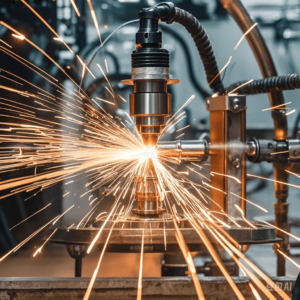
Another important consideration is the energy efficiency of the chiller. As energy costs continue to rise, opting for a system that maximizes energy savings is crucial for long-term financial sustainability. Look for chillers equipped with advanced features such as variable-speed drives, energy recovery systems, and intelligent controls that optimize performance based on real-time conditions. These features not only enhance energy efficiency but also align with broader sustainability goals.
Finally, it’s imperative to consider the maintenance and support services offered by the manufacturer or supplier. A reliable thermal spray water chiller should come with comprehensive support to ensure optimal performance throughout its lifespan. This includes regular maintenance, troubleshooting assistance, and access to spare parts. By choosing a reputable provider with a track record of customer satisfaction, you can ensure that your thermal spray water chiller operates smoothly and effectively, ultimately contributing to the success of your operations.
Conclusion: Harnessing the power of thermal spray water chillers for efficient cooling

In conclusion, thermal spray water chillers represent a revolutionary approach to managing heat in various industrial processes. By leveraging advanced thermal spray technology, these chillers provide exceptional cooling capabilities that enhance efficiency, reduce costs, and promote sustainability. As industries continue to face challenges related to heat management, investing in thermal spray water chillers emerges as a strategic solution that can yield significant benefits.
The advantages of thermal spray water chillers extend beyond immediate cooling needs; they contribute to the longevity of machinery, improved product quality, and reduced environmental impact. As manufacturers increasingly prioritize operational efficiency and sustainability, these chillers are becoming indispensable tools in achieving those objectives. By embracing this technology, businesses can position themselves favorably in a competitive landscape while fostering a culture of innovation and responsibility.
Ultimately, the integration of thermal spray water chillers into industrial processes is not just about defying heat; it’s about redefining how businesses approach cooling challenges. By understanding the unique benefits and applications of this technology, organizations can harness its power to drive efficiency, reduce costs, and contribute to a more sustainable future. As we move forward, the continued evolution of thermal spray technology promises to unlock even greater potential, paving the way for a new era in industrial cooling solutions.

